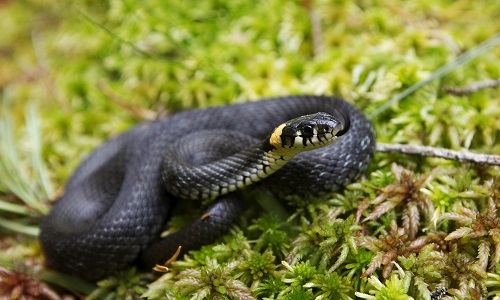
Scientists have developed a DNA test to identify the species of a snake that has bitten a person.
The test, that worked by collecting DNA samples of the snake from the fang marks, provided details of its species with 100 percent accuracy.
Earth is home to more than 3,500 species of snakes. Every year, snakebites kill about 125,000 people in the world and 46,000 in India.
Success of a snakebite treatment, according to experts at the Ehrlich, entirely depends up on the correct identification of the snake and administration of the right anti-venom. This is particularly because each species has its own unique venom and doctors treat snake bites according to the specific property contained in the venom- cytotoxic, haemotoxic or neurotoxic. Cytotoxic compound attacks and leads to cell death. Haemotoxic agent destroys red blood cells, affects clotting and leads to internal and external bleeding. Neurotoxic compound, on the other hand, leaves a negative impact on the nervous system.
"People bitten by snakes in South Asia often do not seek treatment at a medical facility, and if they do, the vast majority don't take the snake to clinics, although it is often killed, and can't identify the species that bit them," Dr François Chappuis of the Geneva University Hospitals in Switzerland, who directed the study, said in a news release. "Yet knowing the species of snake is critical to determining the best course of treatment."
During the study, researchers analysed DNA samples collected from the snake bite wounds of 194 people in Nepal. They identified that 87 were caused by venomous snakes. Researchers based their findings on 21 dead snakes that the victims had brought along with them. The DNA sample collected from bite wounds correctly predicted the species of the snakes.
"These findings represent a significant step toward improving care for patients in areas of the world where snakebites constitute a massive but neglected health risk," Chappuis, said. "This DNA test may hasten more effective bedside diagnostics for snakebite victims, giving them a better chance of surviving and making a full recovery."
Researchers also exactly identified the species and tell whether they were venomous or non-venomous by the clinical symptoms of the patient.
Encouraged by the findings, researchers said that they have already started developing a rapid diagnostic dip-stick to improve and fasten medical care currently available for snakebite victims.
Findings of the study were presented at the American Society of Tropical Medicine and Hygiene's (ASTMH) Annual Meeting.

















